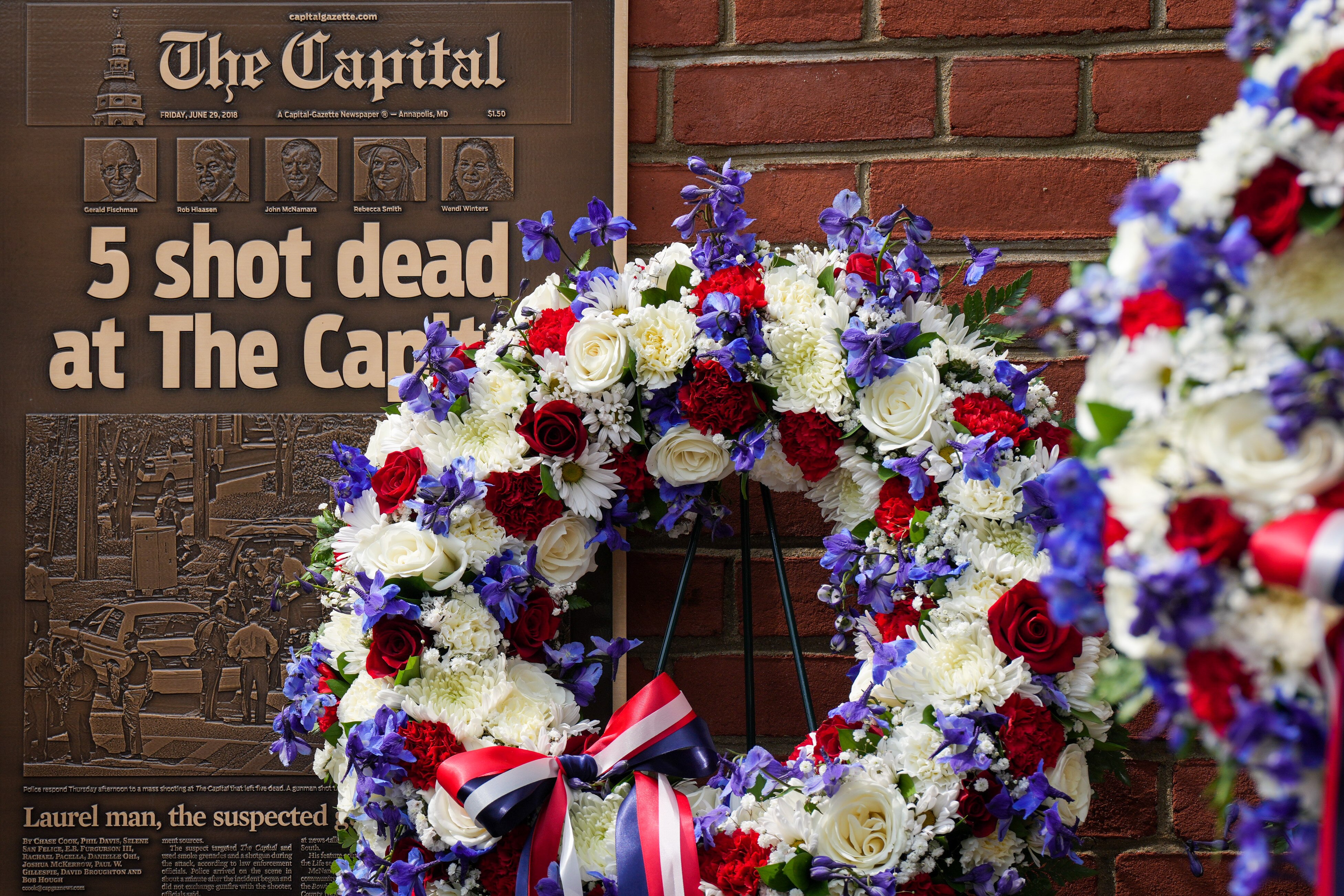CURRENT EDITION: baltimore (none)🔄 Loading BlueConic...EDITION HISTORY: No changes tracked
🔵 BlueConic: ___🔗 Query: ___✏️ Composer: ___
Social justice
Decades after Annapolis uprooted Black families, some seek justice
The Coalition for Atonement and Repair seek restorative justice from the city of Annapolis after urban renewal displaced the Old 4th Ward in Annapolis.
Suspended NAACP leaders accused of bullying, financial misconduct deny wrongdoing
Rev. Kobi Little, head of the NAACP Maryland State Conference, and Joshua Harris, treasurer for the state conference, were suspended by the national NAACP last week.
Top local leaders for the NAACP suspended by national president
Rev. Kobi Little, the president of the Baltimore NAACP, and Joshua Harris, vice president of the Baltimore NAACP, were both suspended this week by the national organization.
The pro-housing movement is having a moment. The YIMBY crowd is cheering.
Whether the Democrats’ new fervor will translate into policy changes and more housing is less certain, as Gov. Wes Moore and others who have tried already know.
Anne Arundel County to launch comprehensive hate crime prevention program
Anne Arundel County has received a $1.2 million grant from the U.S. Department of Justice to reduce hate bias incidents in Anne Arundel.
Rural Marylanders faced more food insecurity this summer
Food insecurity in rural Maryland has been especially pronounced this summer, local advocates say. Low-income families are grappling with soaring grocery prices and unusually high temperatures that hit at the same time as federal reductions in food assistance programs.
Baltimore duo making national park trips a ‘Black people thing’
Launched by two Baltimore-natives in 2022, Our Parks Too! is a campaign that encourages Black people to visit and enjoy the country’s national parks system.
Black bicyclists were attacked with bear spray in Annapolis. They responded with 2-wheeled love.
More than 100 members of the predominantly Black Push’N Pedals Cycling Club and other cyclists kicked off a Ride Against Hate Friday night in response to an ugly episode of racism in Annapolis earlier this summer.
New Reginald Lewis Museum exhibit shows power of media in the Civil Rights Movement
“iWitness: Media & the Movement” is a new exhibit that launches Thursday at The Reginald F. Lewis Museum of African American History & Culture. The yearlong exhibit coincides with the 60th anniversary of the Civil Rights Act of 1964, which prohibits discrimination on the basis of race, color, religion, sex or national origin.
Did Annapolis police officers track their own deputy chief in fight over waste?
Two Annapolis police officers who are union representatives used department tech to track a police major's vehicle as he worked from home, prompting police Chief Ed Jackson to suspend them. The officers have returned to work, but the incident lies at the heart of a planned no-confidence vote.
Orphans court ugliness is a sign that Maryland needs to abolish it
A clash between Anne Arundel County Orphans Court judges and the conviction of a register of wills on a misconduct charge underscore the need to reform the system that presides over the administration of estates.
Black women crab pickers risked it all in 1938. Maryland finally recognizes them.
The Maryland Department of Transportation recently installed a historic marker on Route 413 in Crisfield to commemorate the 86th anniversary of a strike by about 600 workers — predominantly Black women — for fair wages in the seafood industry. It’s part of a statewide effort to recognize history that has been left out or gone unacknowledged.
Remembering Howard Cooper, a Black teenager lynched in Towson
Nearly 140 years ago, a white mob lynched a Black teenager in front of the old Towson jail. On Saturday, a ceremony remembers Howard Cooper.
After years of criticizing Annapolis Police, civil rights group to honor department
In what they are calling a “historic” event, the Annapolis Police Department, as well as the ACLU of Maryland, is being recognized by the Caucus of African American Leaders.
Why the LGBTQIA+ community needs straight allies
Now that Baltimore Pride is over, some in the LGBTQIA+ community know that the fight for gender minority rights and existence also relies heavily on having meaningful straight allies.
PHOTOS: A day to celebrate Trans Pride in Baltimore
An estimated 2,500 people turned out for the third annual event to celebrate Baltimore's trans community. The event included a parade, a block party and a street renaming.
Six years after the Capital Gazette murders, I’m still searching for meaning
Lines carved by the wind on the sand are no different than what followed the violence that ended five lives on June 28, 2018 — energy moving from one form to another.
Biden pardons military members convicted for gay sex
President Joe Biden pardoned former U.S. service members convicted of violating a now-repealed military ban on consensual gay sex, which will clear the way for them to regain lost benefits. The pardon goes even further to protect LGBTQIA+ service members than the controversial policy “don’t ask, don’t tell” that was repealed in 2010.
Following major lawsuit, state official in charge of nursing home inspections to retire
The longtime head of the state office responsible for nursing home inspections will retire, officials announced about a month after a major lawsuit against the agency.
Police say they didn’t spray a chemical agent at Pride. Why don’t those who attended believe it?
A Baltimore spokesperson said that Mace was released after two groups of people got into an altercation, but people who attended think something else happened.














